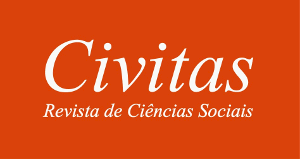Abstract:
The Uruguayan borderline with Brazil has historically been identified as a region with the worst socioeconomic indicators of the country. On the other side, Uruguayan borderline with Brazil is a bilingual region, with a categorized situation of diglossia from the earliest linguistic studies. This makes us wonder if differences on educational results are related with the use of “portuñol” on behalf of the Uruguayan borderline students. The aim of this research is to analyze the isolated effect of being a “portuñol” speaker and live in the borderline, over a standard model of educational inequality (social class, gender, type of educational institution). In order to achieve this we generated a Hierarchical Linear Model in two levels: students and schools, adding to the classical educational determinants linguistic factors, using microdata of Pisa 2009. The results allow us to confirm the hypothesis of a linguistic inequality on an individual level.
Keywords:
Education inequality; Linguistic factors; Boundaries

 Fonte:
Fonte:  Fuente: Cuestionario al estudiante aplicado en Uruguay para el ciclo 2009. Anep.
Fuente: Cuestionario al estudiante aplicado en Uruguay para el ciclo 2009. Anep.